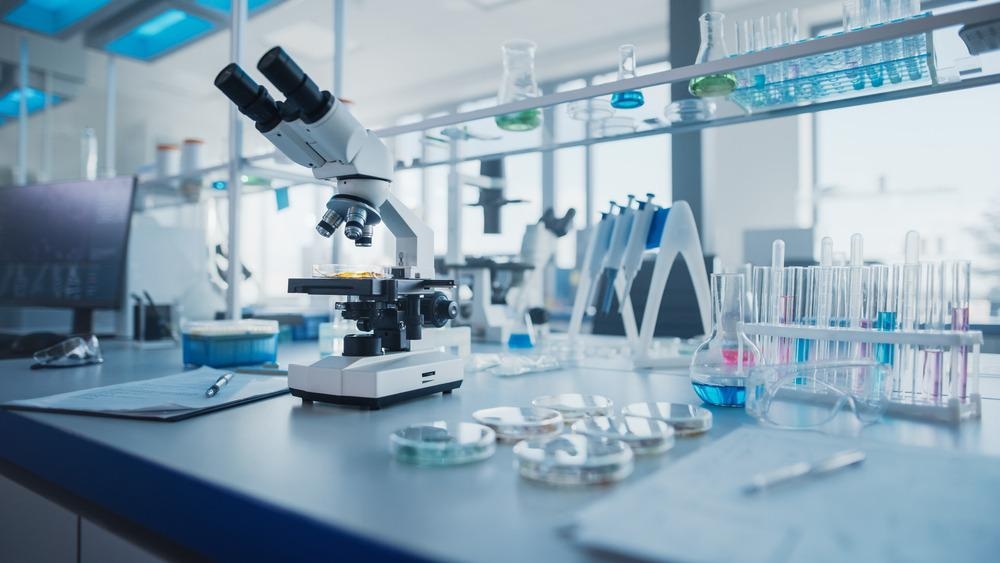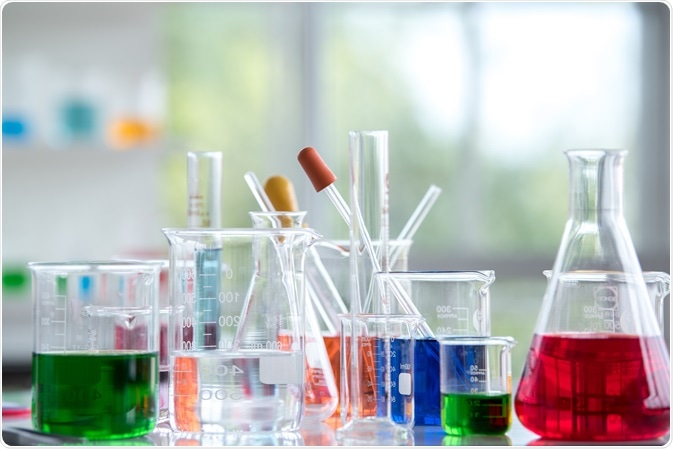The quality of laboratory consumables can be defined as the accuracy, reliability, and precision of the consumables used. A laboratory consumable is any item that is routinely purchased or replaced; for example, pipette tips and cuvettes.

Laboratory consumables. Image Credit: Gorodenkoff/Shutterstock.com
The majority of laboratory consumables, such as pipette tips, are typically comprised of plastics and their demand is constantly increasing. Plastic-based laboratory consumables must be able to withstand high mechanical and thermal loads, have high resistance to chemicals, and have a high degree of purity.
Fundamentals of High-Quality Lab Consumables
All plastics used to produce laboratory consumables must meet controlled purity requirements. They must possess certain properties required by the manufacturing process. Laboratory consumables must not demonstrate any signs of aging and the raw materials used to produce them (PP and PE) should meet the requirements of modern plastic-based lab consumables.
The following characteristics should be considered by researchers when selecting high-quality laboratory consumables:
- Function, tightness, precision
- High chemical resistance
- High thermal resistance
- High resistance to centrifugation forces
- High transparency
- Precise shape
Economic Determinants: Cost vs Quality of Laboratory Consumables
Durability and efficiency should take precedence over the purchase cost. It is important to consider the balance between the initial purchase cost and any ongoing operational and maintenance costs.
This is particularly significant when placing sustainability as a tenant of procurement decisions. While an individual unit of high-quality laboratory consumables can be more expensive, it may produce a lower cost in carbon impact throughout an extended lifetime, with subsequent reduction in energy costs. Furthermore, this could result in reduced maintenance of laboratory consumables, downtime, and additional time spent managing repairs or replacing equipment.
High-quality laboratory consumables may also be considered in terms of the manufacturers’ data collection methods. For example, the room or ambient temperature used to achieve their energy figures for the items. Researchers should request environmental testing conditions from manufacturers when evaluating their energy performance. Comparisons of these factors among reputable brands can aid in making a cost-benefit analysis. Side-by-side comparison of the different makes and models may simplify the decision-making process.
Another aspect of high quality may be storage compatibility. Racking can add the significant cost of an ultra-low temperature (ULT) freezer and so it is recommended that racking from previous units be used if they are compatible.
Social Determinants: Brand Reputation as an Indication of High-Quality Consumables
Reputed brands are likely to produce high-quality laboratory consumables. Laboratory equipment manufacturers’ legacies are often based on the delivery of high-quality consumables that are subsequently capable of high-quality performance. Moreover, many offer custom options to produce products that are fit for purpose in any particular laboratory. Using a reputed brand also allows consolidation of sourcing, as it eliminates the need to visit multiple manufacturers to source various laboratory consumables.
In addition, reputable brands are also capable of producing at a large scale, with experience, and have a larger end-user base as they can ship worldwide. Reputable brands typically provide more robust and extensive customer support with an emphasis on customer satisfaction. As such, reputable brands offer greater availability, faster turnaround ordering time, and minimal delays. High-quality manufacturers should also be able to address any specific, technical questions regarding the performance of their consumables
Warranty is an important consideration when sourcing laboratory consumables. It is important to ascertain the warranty details and the type of support that accompanies the warranty, as this will typically vary significantly between manufacturers. Factors to consider include the length of the warranty period; incidents that void the warranty; ease of contact in cases of a warranty claim; the warranty process (logistics for consumable return, refund, replace or repair policies, etc.); and the option for extending the warranty.

Image Credit: Pichet Akanisttawong/Shutterstock.com
High-quality laboratory consumables are those that are easy to use and their characteristic is directly related to technological development. Generally, the more sophisticated laboratory consumables or instruments are, the easier they should be to use. Moreover, sophisticated and easy-use equipment can reduce work time and the number of laboratory materials (such as volume and concentration) necessary for an experiment.
Consideration should be given to the laboratory consumables in terms of: the logistics required to perform a specific required technical skill and the staff conducting the process; laboratory infrastructure required; environmental conditions required for shipping, storage, and operation; compatibility with quality control material; shelf life upon manufacturer and guarantee shelf-life upon delivery; and expected lifespan of the equipment.
Accuracy and Performance Characteristics of Laboratory Consumables
The accuracy of equipment is a measurement of the precision of using equipment parameters or the smallest value that can be measured accurately that approaches the true value. A laboratory consumable can be accurate and precise, or accurate but not precise. Accuracy indicates the proximity of the measurement result to the true value, while precision characterizes how close the difference in the value at the time of the measured repetition is.
References:
Further Reading
Last Updated: Jan 31, 2022